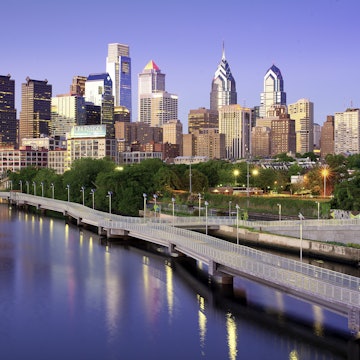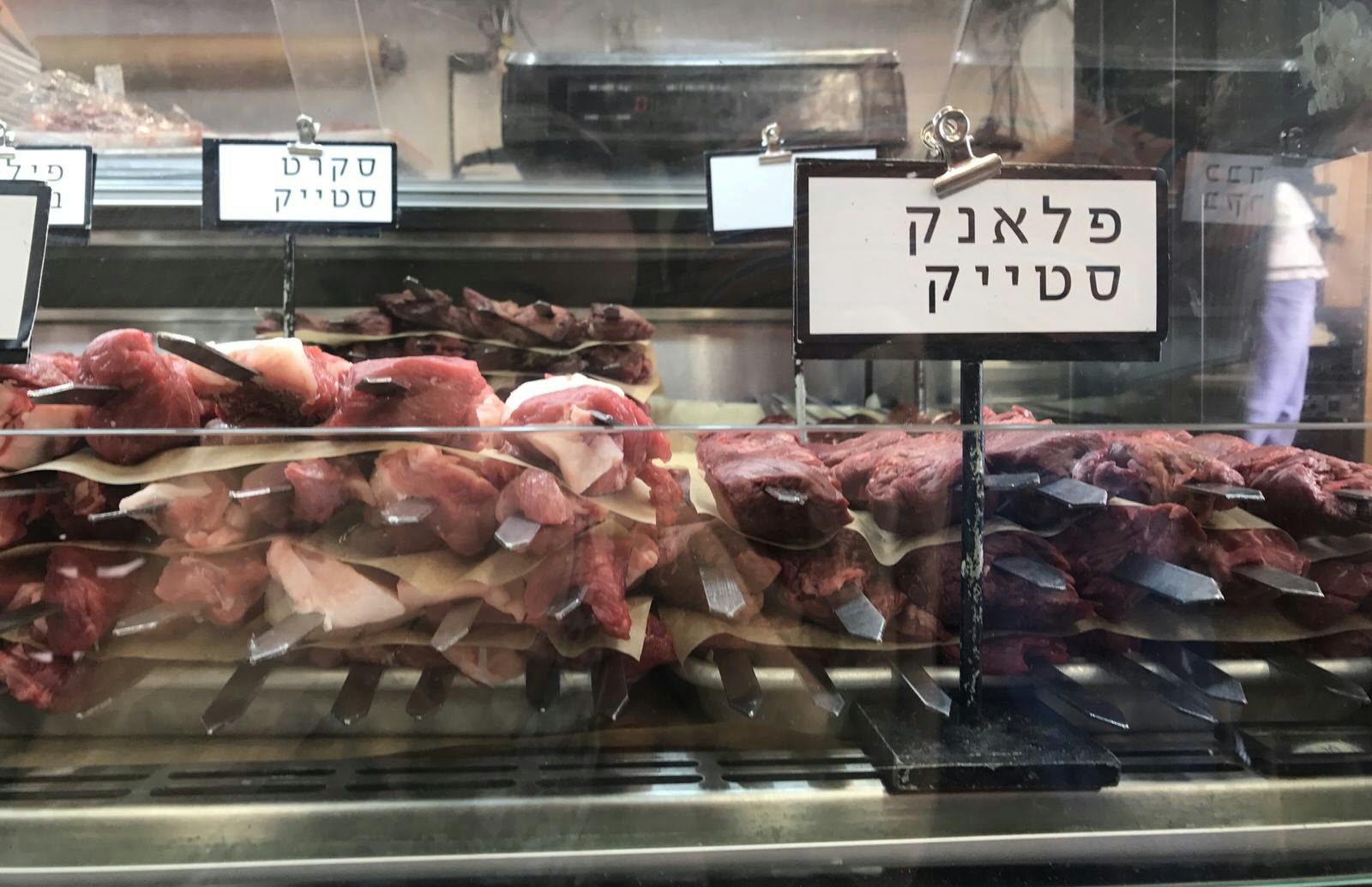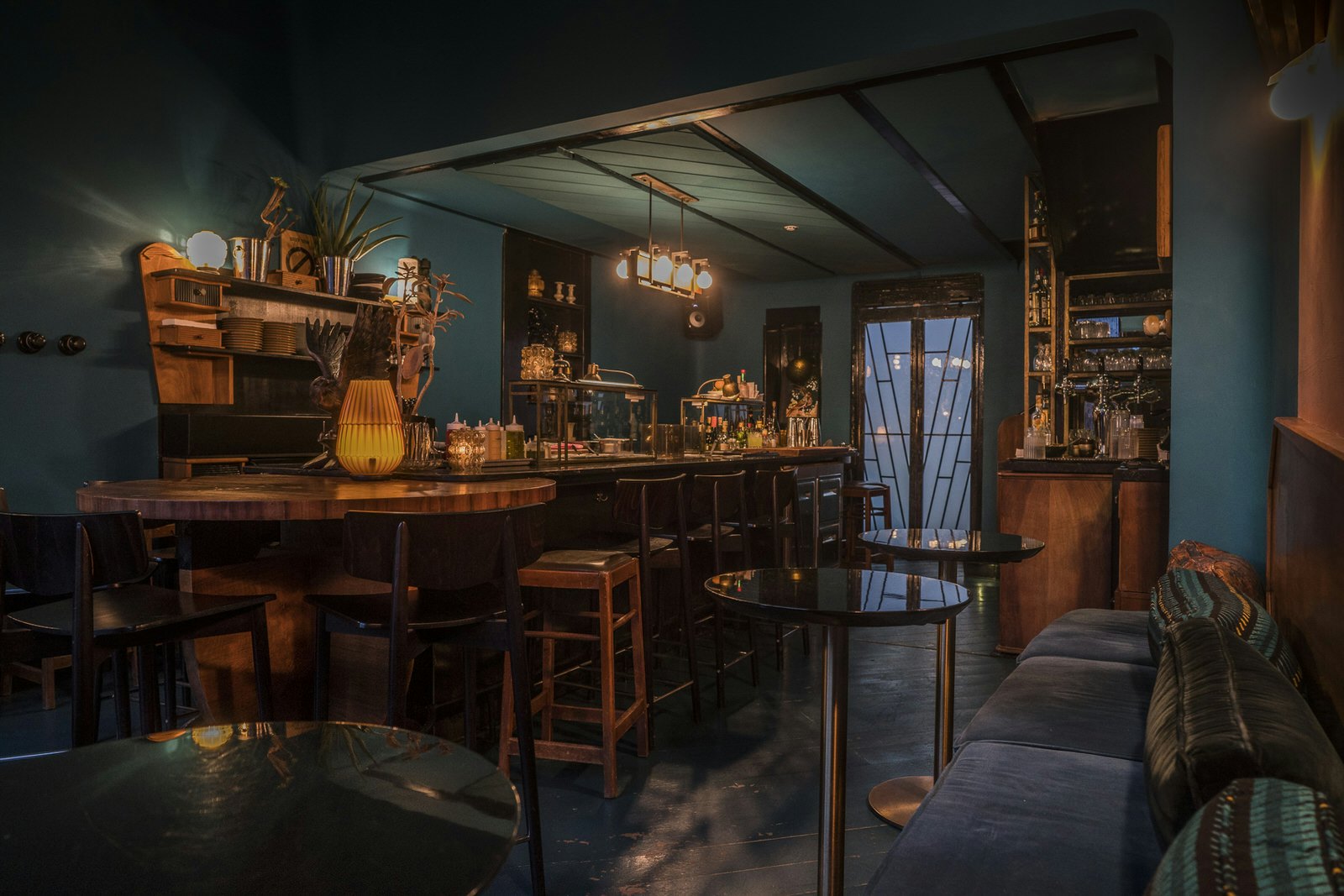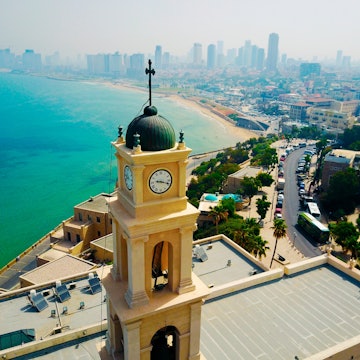
Market to table: must-visit spots in and around Tel Aviv’s markets
Nov 14, 2017 • 7 min read

Tel Aviv’s markets are its gritty, beating heart, where locals’ obsession with regionally sourced produce is married with the ancient traditions of the city’s many immigrant communities. TLV’s markets are based in working-class neighbourhoods, which were founded by all sorts of international newcomers, from Iran to Yemen to Eastern Europe.
To discover the complex cultural history and modernised celebration of the Middle East’s best dishes, dive into Tel Aviv’s market-to-table restaurants.

Carmel Market
Carmel Market is Tel Aviv’s largest and most famous cultural melting pot. Naturally, it’s also the home base of a new crop of chefs who are doing away with previously glorified European-style cuisine and getting back to their roots. The result is an exciting and wallet-friendly foodie experience that gets you up close and personal with the chaos of local life. Wander Carmel Market with a freshly squeezed pomegranate juice from any of the market's fruit stands and accept a sample of halva, a dense Middle Eastern confection made from sesame paste, to whet your appetite. Take your time. You’re going to need to pace yourself.

Bar Ochel
Smack dab in the middle of the Carmel Market, this colourful and raucous alleyway stand, or basta in Hebrew and in Arabic, is a constant party. Amid the shouts from vegetable vendors and the unceasing crowds, grab a rickety table and order a sumptuous mix of kebabs and grilled vegetables, sourced directly from the surrounding stalls. The simple, cheap and quickly prepared dishes are excellent for a quick bite or a leisurely lunch. Bar Ochel is a perfect introduction to people-watching in the market and delicious way to fuel up for a day of further exploration.

M25
The carnivore's paradise of M25 offers up quintessentially simple Israeli staples in a former market stall just off the main street of the noisy, crowded Carmel Market. It’s named after its location: 25 metres from the high-end butcher that supplies its dishes, which is the first clue as to how seriously they take the quality of their meat. M25 puts a fresh spin on the Middle Eastern classics, from aray’es, pita stuffed with charred minced lamb that’s a hefty starter, to the perfectly smoked shawarma served on a bed of tahini.

Beer Bazaar
Stop by Beer Bazaar for its dizzyingly extensive selection of more than 100 local craft beers from microbreweries throughout the country, for which the bartenders are more than happy to give personal explanations and recommendations. Pair your beer with a roast beef sandwich, a pizza made from Yemeni-style flatbread known as lahoh or with any other item from the changing menu of tasty bar snacks. The Carmel Market bar is the original location that preceded four others in Tel Aviv and one in Jerusalem’s Mahane Yehuda Market. The tiny open-air stool seating is a classic setting for Tel Aviv's popular Saturday daytime drinking rituals, a common practice in this city where hedonism is the dominant religion.

The Prince
The Prince is on Nahalat Binyamin St, Tel Aviv’s single-street garment district that runs parallel to Carmel Market. This rooftop bar-cum-restaurant is easy to miss if you’re not looking for it. Head up the graffitied stairs and into an always-packed rooftop oasis, where creative cocktails are paired with tasty dishes like lahmajun, a Turkish-style pizza topped with minced meat and a mix of spices. For travellers on a budget, there’s a worthwhile happy hour discount on food and drinks every day until 8pm.

Port Sa’id
Just a hop from the Carmel Market, Port Sa’id is the uncontested holy grail of new Israeli cuisine. This hipster hotspot, perpetually packed (and, no, you can’t make a reservation), is named after the once-hedonistic waterfront city in Egypt and is the brainchild of Eyal Shani, an Israeli celebrity chef famous for waxing nostalgic about a head of cauliflower or a sprig of parsley. His casual eatery-cum-trendy bar has a nightly DJ who plays mostly Middle Eastern funk, rhythm and blues. It’s a shrine to raw and fresh produce, left as pristine as possible to retain their elegant simplicity. Steal a table with a view of the historic Great Synagogue and treat yourself to an array of small and affordable tapas, like aubergine ratatouille or roast beef carpaccio, served on sheets of brown butcher paper intended for sharing.

Levinsky Market
Levinsky is the low-key little sibling of the Carmel Market, where you’ll find plenty of bold culinary experimentation and cheeky rebellion against tradition. The market was founded by Greek immigrants in the 1920s, and later generations included immigrants from across the region and the world, all bringing with them their exotic spices and variants on how to celebrate, and forge a community, through food. The historic five-block radius of spice shops, nut stands, delis and fish vendors is home to the strongest anise liquor from Greece, the saltiest cured olives from Syria and the smelliest salted herring from Poland. Food fiends should carve out at least a full afternoon or evening to explore here.

Saluf and Sons
Saluf and Sons is a festive hole-in-the-wall Tel Aviv institution that’s a nod to the Yemeni immigrant community that set up shop in the nearby Kerem Hateimanim neighbourhood, which means 'Yemeni vineyards'. Grab a spot at the heavy wooden communal table and dig into a bowl of Yemeni meat soup, or mallawach, a flaky savoury pastry sandwich stuffed with tomato puree, nutty tahini and a hard-boiled egg, along with spicy dips – red or green (both equally scorching). Don’t be surprised if the waiter offers you and your party a free shot of arak, an anise-distilled alcohol, for no reason at all. Saluf and Sons feels like your cool friend’s cosy dining room, and, most likely, the rounds of shots will just keep coming.

Salimi
Next door to Saluf and Sons is Salimi, a no-fuss family-owned stalwart, where austere lighting and zero decor only works to remind you of the restaurant’s wholehearted focus on quality food. The clientele is a steady, loyal stream of local families mixed with newer and younger residents, all of whom flock to Salimi for the generous portions of kosher chicken kebabs with fluffy saffron rice, or Gondi soup, a Persian stock filled with chickpea and chicken meatballs. The waitresses come off as overly caring Jewish mothers, often lovingly suggesting ways to help you fatten up if you’re so inclined (‘You’re skin and bones!’ is a refrain often heard). This authentic, off-the-beaten track ‘workers’ restaurant’ – once exclusively for men who toiled in the area and sought a cheap and filling meal – is open for lunch only and closed on Saturday, the Jewish day of rest.
Ouzeria
As a soundtrack of Mediterranean hiphop booms in the background, heavenly mezze keep coming in this Greek-style tavern. Expect at least one incident of shattered plates, followed by a restaurant-wide ‘opa!’ and a round of shots of ouzo, an anise-flavoured aperitif. Dishes like mussels cooked in ouzo, along with a spicy Middle Eastern chilli sauce known as harissa, or the eggplant carpaccio with raw tahini, are not to be missed, though ask the waiter for any specials on the always-changing menu.

Dalida
Dalida is a chic candle-lit bistro in Levinsky Market specialising in eclectic seasonal dishes rooted in cuisines from Tehran to Paris. It’s an ode and a celebration to this still scruffy area: holding onto its deep roots but also constantly reinventing itself. The spicy feta brulée is delightful, as is the bone marrow, served with a brioche and Jerusalem artichoke cream. The menu is on the pricier side compared to other simpler joints in the neighbourhood, but it’s also a gourmet gem that’s known around town as one of the best places to splurge.

Haluzim 3
Haluzim 3 reflects Tel Aviv’s most striking culinary craze: it is in love with pork, a food that is proscribed in Judaism and was until recently considered taboo even in this secular city. What’s more is that Tel Avivians are also in love with traditional Shabbat, or Friday night, meals. Most see no contradiction in melding the two, and thus was born the most-Jewish-and-yet-least-Jewish restaurant in Israel. The signature dishes include the challah – the Jewish braided bread usually eaten on Shabbat – filled with minced pork leg or the maple-glazed pork spareribs, served with apples and cardamom. The romantic setting is a welcome refuge after a day of haggling, but also a perfect viewpoint from which to admire the bustling Levinsky Market.













